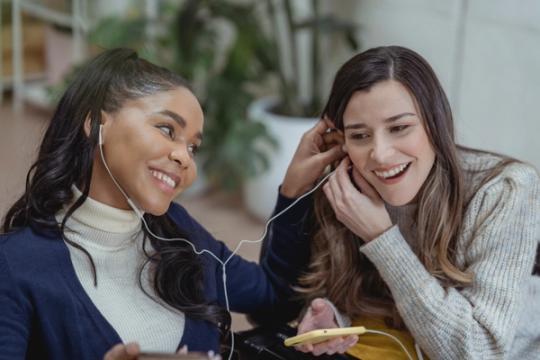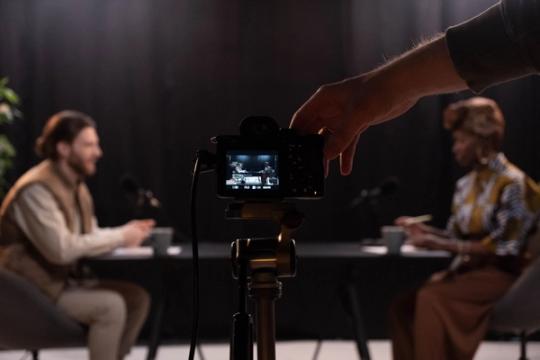
To Mix or Not to Mix: A Beginner's Guide to Podcast Mixers and Audio Success
So, you're diving headfirst into the exciting world of podcasting, and the question on your mind is, "Do I really need a mixer?" Well, my friend, fear not! We're here to unravel the mysteries of mixers and help you decide whether this nifty piece of equipment is a must-have for your podcasting journey. Let's break it down, shall we?
What's a Mixer, Anyway?
First things first, let's demystify the beast. A mixer, also known as an audio mixer or a soundboard, is a magical device that allows you to control and adjust the audio signals from multiple sources. It's like having a DJ console for your podcast. With a mixer, you can connect various microphones, instruments, and sound sources, tweak their levels, and create a harmonious blend of audio goodness.
Do Beginners Really Need a Mixer?
Here's the deal: if you're just starting out with podcasting and you're on a tight budget, a mixer might not be an immediate necessity. Beginners often opt for simpler alternatives to kickstart their podcasting adventures. For instance, USB microphones or USB audio interfaces offer a straightforward plug-and-play setup, allowing you to connect your microphone directly to your computer without the need for a mixer. These alternatives work great for solo podcasters or small setups with minimal audio sources.
Benefits of Using a Mixer:
Now, let's explore the sweet benefits of bringing a mixer into the mix (pun intended) for your podcasting setup:
- Control and Flexibility: A mixer gives you unparalleled control over your audio. You can adjust individual microphone levels, fine-tune the audio balance between hosts or guests, and even add cool effects like reverb or EQ. It's like having your own audio command center, allowing you to sculpt your sound to perfection.
- Expandability: As your podcast grows and evolves, you may find yourself adding more microphones, sound sources, or even incorporating live music or interviews. A mixer gives you the flexibility to accommodate these changes effortlessly. You can easily expand your setup by connecting additional microphones or instruments to your mixer, making it a future-proof investment.
- Enhanced Audio Quality: Mixers often come with advanced preamps and audio processing capabilities, resulting in superior sound quality. They can help mitigate background noise, provide phantom power for condenser microphones, and ensure crystal-clear audio recordings. If you're aiming for professional-grade audio, a mixer can be a game-changer.
- Real-Time Monitoring: One of the sweetest perks of using a mixer is the ability to monitor your audio in real-time. With headphones connected to the mixer, you can hear exactly what your listeners will hear. This allows you to catch any audio issues, adjust levels on the fly, and maintain a high-quality podcasting experience.
Our Top Picks
Behringer Xenyx Q802USB Mixer ($59 on Amazon)
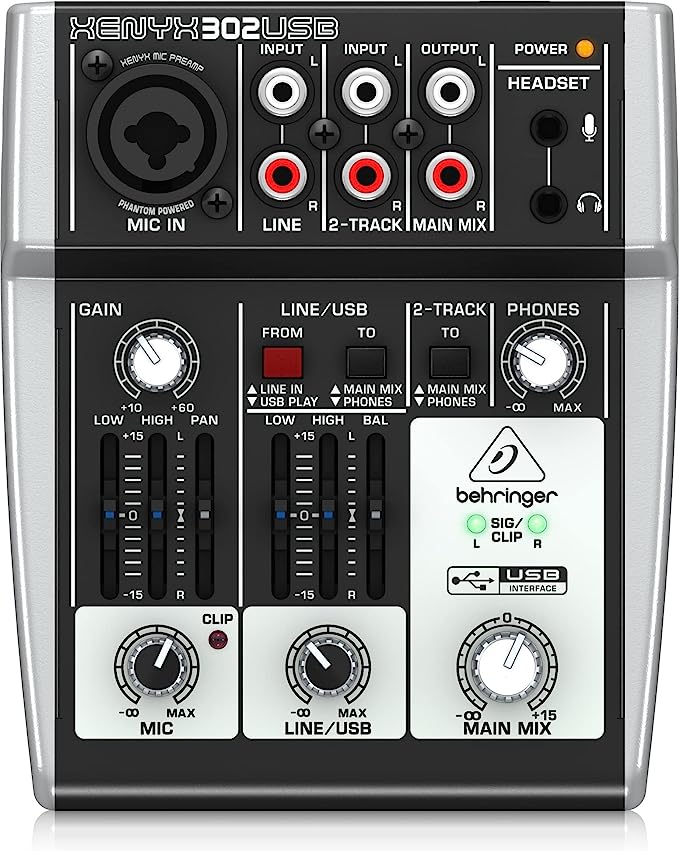
If you're dipping your toes into the world of mixers without breaking the bank, the Behringer XENYX 302USB is a fantastic entry-level option. It offers a solid set of features, including two XLR inputs with high-quality preamps, built-in USB audio interface for easy connectivity to your computer, and basic EQ and FX controls. With its affordable price tag, it's a reliable companion for starting your podcasting journey.
Yamaha MG10XU Mixing Console ($250 on Amazon)
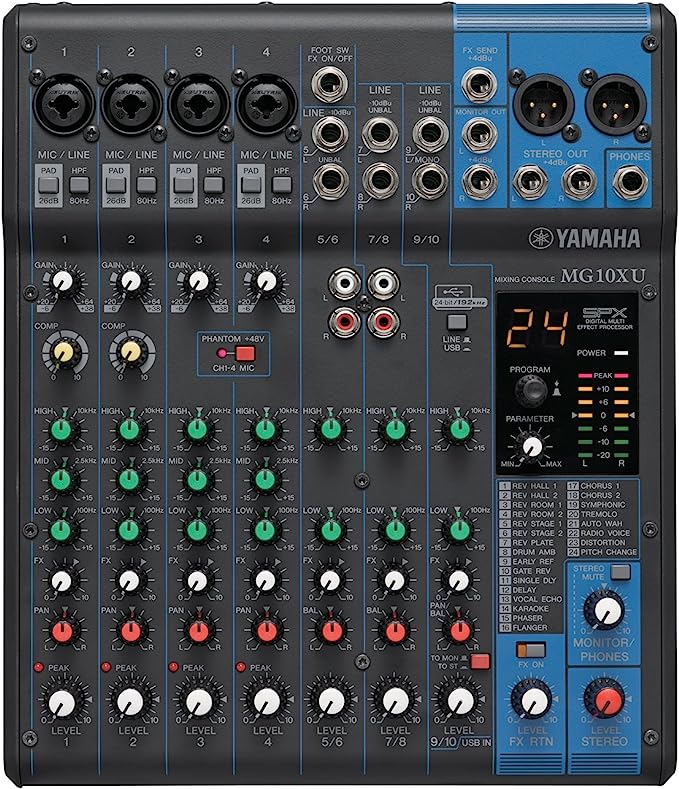
Stepping up the game a bit, the Yamaha MG10XU offers a more robust feature set while maintaining an accessible price point. This mixer boasts 10 channels, including four XLR inputs with Yamaha's renowned D-PRE preamps, onboard SPX digital effects, and a USB audio interface for seamless integration with your computer. With its durable build and reliable performance, the MG10XU is an excellent choice for those seeking a versatile mixer for their podcast.
PreSonus StudioLive AR8 USB Mixer ($400 on Amazon)
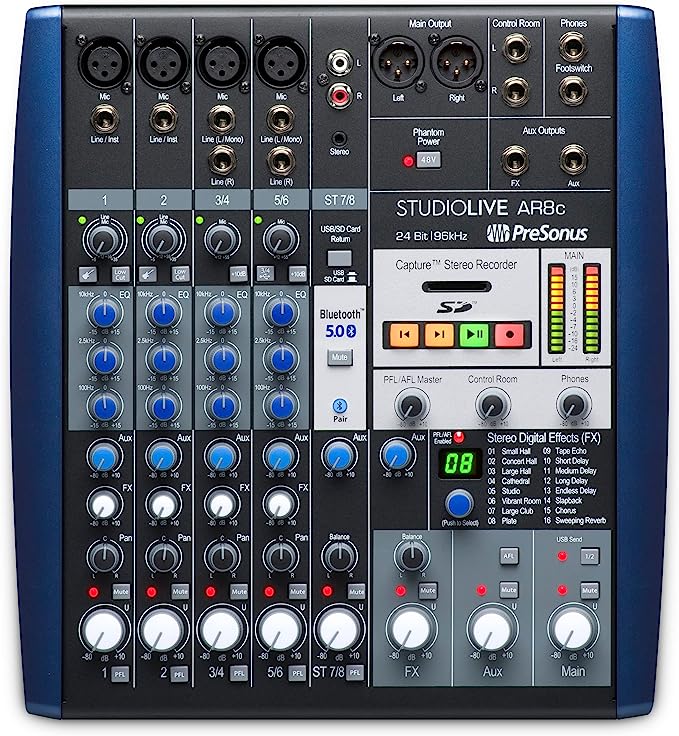
For podcasters who want a bit more flexibility and advanced features, the PreSonus StudioLive AR8 USB is a fantastic option. This mixer packs eight channels, featuring Class A preamps, built-in effects, and a USB audio interface. What sets it apart is its multitrack recording capabilities, allowing you to record each microphone or audio source separately, providing more control during the editing process. The StudioLive AR8 USB is a reliable companion for podcasters who want to up their game and have greater control over their audio production.
Remember, these recommendations are just a starting point, and you can explore various mixers that suit your specific needs, preferences, and budget. Happy mixing and podcasting!
Final Verdict
So, do you need a mixer for your podcast? It depends on your specific needs, budget, and future aspirations. Beginners can definitely get started without a mixer, utilizing USB microphones or audio interfaces. However, as you progress and crave more control, expandability, and enhanced audio quality, a mixer becomes a worthy investment. It's like upgrading from a two-seater scooter to a sleek sports car—both will get you to your destination, but one offers an exhilarating ride with endless possibilities.
Remember, my fellow podcaster, the heart and soul of your podcast lies in your content, passion, and connection with your audience. Whether you choose to rock a mixer or explore alternative setups, the key is to embrace the journey, have fun, and keep creating amazing content that resonates with your listeners. Happy podcasting!
